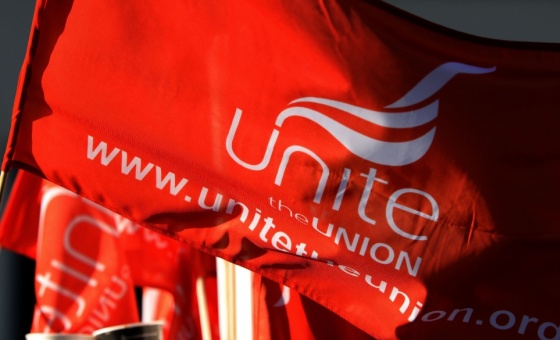This is the last article you can read this month
You can read more article this month
You can read more articles this month
Sorry your limit is up for this month
Reset on:
Please help support the Morning Star by subscribing here
With less than a year to go to the 2014 referendum on Scottish independence you could be forgiven for thinking that the issue is confined to two competing nationalisms, Scottish and British, given the paucity of political analysis from Yes Scotland and Better Together.
A recent article by former Alex Salmond aide Alex Bell described both campaigns as a "tedious parade of union jacks versus saltires, of pop identity about caring Scots versus heartless Tories."
There is much more at stake - which is why the publication of Class, Nation and Socialism: The Red Paper On Scotland 2014 is both timely and welcome.
A compendium of essays by a collection of Scottish academics, trade unionists, campaigners, MSPs, political campaigners and councillors, who make up the Red Paper Collective, the book challenges the assumptions being pushed by the Scottish National Party and its allies.
It posits a working-class unity north and south of the border as the basis of resistance to neoliberalism, rather than the "classless nationalism" currently dominating both sides of the issue.
This is the third Red Paper on Scotland. The first was published in 1974 during a period of high trade union militancy in Scotland and throughout Britain.
It was edited by Gordon Brown, then a Labour firebrand wedded to socialist ideas, and offered a vision of social and economic justice for a working class that knew its own strength.
The second was published in 2005. It reflected new Labour's embrace of neoliberalism as the future.
Eight years on, neoliberalism has crashed on the rocks of its own contradictions, its adherents increasingly out of touch with the needs of the masses.
It has left a political vacuum which has yet to be filled. In Scotland the SNP and the Yes campaign, supported by much of the left, have been able to present themselves as an attractive alternative to the status quo.
But is it an alternative? The book provides a forensic analysis of the impact of three decades of neoliberalism on the contours of Scottish society.
On the economy, local government, housing, industry, transport and so on the extent to which the gains made during the post-war settlement have been rolled back by the economic juggernaut of neoliberalism is staggering.
But SNP positions on the economy, taxation and the primacy of private ownership and investment are driven by the same attachment to free market nostrums that has sown the chaos currently felt across the country.
And proposals to retain the British monarchy, keep the pound sterling as the national currency and join Nato make the "independence" being pushed look more like dominion status.
The pro-independence left argues that after 2014 the case for a progressive alternative to the SNP's vision will be able to gain wide traction in Scottish society before the 2016 elections, but this is a triumph of idealism over reality, an analysis based on what might happen two years hence rather than on the here and now.
Scotland's history is replete with champions of radicalism and socialism - the book holds up Keir Hardie and Mick McGahey as examples, while Jimmy Reid's magnificent role in leading the Upper Clyde Shipyards work-in is rightly acknowledged as the high-water mark of Scottish trade union militancy in the post-war period.
Reid's later conversion to nationalism reflected his own despair at the onset of neoliberalism under Margaret Thatcher and new Labour's capitulation to it. And we mustn't forget that Reid also turned his back on trade union militancy in later years, attacking Arthur Scargill and the miners' strike in the pages of the Sun during the mid-1980s.
But the pro-independence left points to other major inspirations - James Connolly and John MacLean, for example.
The book looks at Connolly but omits MacLean, its major weakness.
Connolly was a man who never succumbed to the illusions of nationalism as a way forward for the working class.
The Easter Rising was a response to the carnage suffered by the European working class as its rulers fought over the spoils of empire.
Ireland was a British colony - of which six counties remain - while Scotland was, and is, not. Connolly believed that breaking Ireland's connection to Britain would help advance working-class revolution across Europe.
John MacLean's later embrace of a Scottish Workers Republic as a shortcut to the socialist transformation of society was a product of his despair at the lack of progress being made by Britain-wide socialist and Marxist parties.
Like Connolly, whom he admired, MacLean was a revolutionary giant whose life and work has inspired and influenced generations of trade unionists and socialists.
With the success of the Bolsheviks in Russia as an inspiration, MacLean believed that the militancy and class-consciousness of the Scottish working class was ahead of its English counterpart, while his revulsion at the actions of Scottish troops in Ireland made him determined to work for Scottish independence.
"The tremendous and growing power of revolutionary labour in the Clyde area, a power that a break in wages and unemployment must vastly intensify, assures us that Scotland, once politically separate, would swiftly move to communism, and thus force England well on the way."
Powerful stuff, but wrong. Nationalism that isn't shaped by national oppression is a regressive force.
It's a cul-de-sac for the working class and for socialists.
Under present conditions, if Scotland does become independent its workers will immediately enter a race to the bottom against their counterparts in the rest of Britain. There is no prospect of a cold-water Cuba on the horizon.
Three hundred years of political and economic union have forged deep cultural, social, economic and political bonds throughout Britain.
Three decades of neoliberalism may have succeeded in weakening those bonds through the atomisation of society, but they have not yet succeeded in breaking them.
The precedent for working-class unity has already been set and is still in evidence today, whether through trade union struggles, the campaign against the poll tax that brought down Thatcher or the current anti-bedroom tax campaign.
It is the unity of the British working class that has driven progressive politics, in Scotland as in England and Wales, over the past century.
But the Red Paper Collective are not just nay-sayers. They explore an alternative path to challenging neoliberal orthodoxy via the extension of devolution to include greater fiscal autonomy over tax and borrowing as a stepping stone to a federal Britain.
As a template for what progressive governments can achieve the authors look to developments in China and Latin America, where a large state footprint in the economy has maintained high rates of growth and negated any fall in consumption by comparison to the US or Europe in the current recession.
Planning and a return to investment in industry, housing and infrastructure offer the way out of recession, with progressive taxation on income and profits necessary to arrest the sharp decline in wages and living standards affecting the working class.
Class, Nation and Socialism: The Red Paper 2014 is published by Glasgow Caledonian University and costs £7.99.








